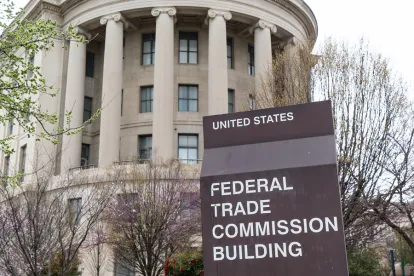In brief: The FTC has sent hundreds of advertisers (including high profile retailers, manufacturers, agencies, and other large businesses) across assorted industries a Notice of Penalty Offenses. The Notice warns recipients regarding use of endorsements and testimonials in advertising that can be deceptive. Many businesses increasingly rely on influencers and customer reviews and the FTC has been increasingly reviewing these practices. The Notice does not mean the FTC is investigating the specific recipients’ practices, but warns the recipients (and other advertisers more generally) the FTC is watching and they need to manage their compliance or risk civil penalties.
The Federal Trade Commission (FTC) announced last week a broad enforcement campaign against deceptive endorsement practices. The FTC sent a “Notice of Penalty Offenses” to more than 700 companies, notifying them fake or misleading endorsements and reviews could result in civil penalties. The FTC has increasingly enforced against deceptive reviews and endorsements using its powers under the FTC Act and according to its Endorsement Guides (which provide good insight into what is permissible), but this campaign by the FTC is its largest action in this space to date. The proliferation of use of influencers on social media and product reviews are undoubtedly a motivating concern in this campaign to send advertisers a clear message to avoid poor endorsement practices.
The Notice outlines a number of specific practices that the FTC has previously found unfair or deceptive. These include, but are not limited to: falsely claiming someone is endorsing a brand, product or company, misrepresenting a former user as a current or recent endorser, making product claims through an endorser indirectly, which the advertiser could not make directly, failing to disclose the endorser’s material connection to the endorsed company, and misrepresenting whether the experience of endorsers represents consumers’ typical or ordinary experience.
Endorsers can be anyone with a “material connection” to a company, including recognizable influencers, celebrities, athletes, and paid spokespersons, as well as (less obviously) employees, relatives, undisclosed ambassadors for a brand who received money, free product to trial, or other consideration from a brand, and persons posting fake reviews.
Beyond using the Notices to remind advertisers of their legal obligations around proper use of endorsements and testimonials (to aide in clear and truthful advertising and avoid deception), the Notices are a basis for the FTC to contend the recipients now have actual knowledge of deceptive practices, which could help support civil penalties against them if they later engage in the criticized practices. Penalties are currently just under $44,000 per violation. The Notices make clear the recipients haven’t necessarily engaged in deceptive advertising practices at this time, but should they do so, the FTC will have the power to take action against the recipients, including via imposition of civil penalties, which can quickly add up. Non-recipients of the Notices are also fore-warned to examine their use of endorsements and reviews, train their marketing teams on the do’s and do not’s and make sure their agencies also know what is required. Outsourcing to an agency does not relieve the advertiser from liability to comply.





 />i
/>i

